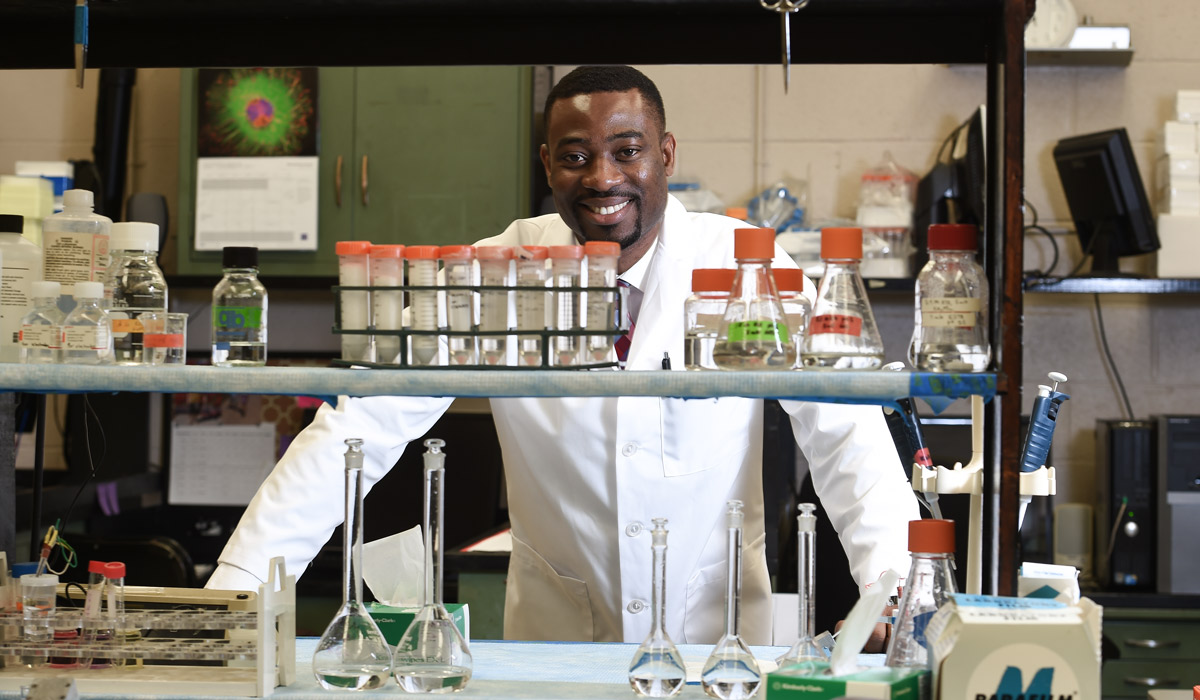

You can be forgiven for not knowing what "Lipid Composition Regulates Anthrax Toxin Uptake” means. It helps to be a doctoral student in cellular and microbiology, as is Nnanya Kalu. “Lipid composition…” was the name of his award-winning poster for Catholic University Research Day in spring 2016. His entry took the prize for graduate students.
The Nigeria native with the easy smile is hoping to defend his dissertation in the spring. Not wanting to jinx himself, though, he won’t take anything for granted until he’s done. After that, the search for a full-time job awaits. He’s also working on his third published paper—his first as primary author, assuming it’s accepted.
Kalu’s field of research, as he explains for the layperson, has to do with how lipid (fat) affects disease (in this case, anthrax, a toxin) and how it gets into a cell (uptake) via something called an “ion channel.” Applications could include treating cancer cells or people affected by a bioterrorism attack.
“Some people think that you can’t have faith and be logical at the same time, but CUA kind of provides that nesting ground to grow in both areas of your faith and the reason behind how things work.”
“Just like every other field of research, you can never exhaust the possibilities,” he says, his voice full of enthusiasm for the seemingly limitless potential of his work. “The more you answer questions, it raises more questions.”
Kalu, 35, is also a medical doctor in neuropsychiatry, having completed medical school in Nigeria. He received a scholarship about five years ago to study in the United States, and Catholic was the only institution he applied to.
“I’ve always wanted to come to the U.S. because of the quality of research that goes on in the institutions of higher learning,” he says. “We do research back in Nigeria, but you can’t compare the both of them.”
Ekaterina Nestorovich, assistant professor of biology, is Kalu’s lead professor and the one who encouraged him to submit his poster for the competition. She’ll be sorry to see him move on after completing his studies, she says, “but I’ll be very glad to follow and watch him grow and find a position.”
Through a local network of Nigerian ex-pats, Kalu maintains strong ties to his native culture, which he says runs at a slower pace than does American culture.
“It gets very busy here. Everyone is always doing something. Back home you can chill out with a couple of family members,” he says wistfully.
“But you get used to it,” he adds, acknowledging with a bashful smile that he has fallen prey to the American habit of multitasking, before finishing the interview and heading back to his research.